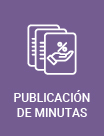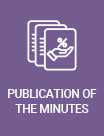Seminario de Microeconomía Aplicada - The Signaling Effect of Academic Distinctions on the Career of Young Professionals
El seminario de Microeconomía Aplicada del Banco de la República es un espacio para discutir trabajos en progreso en las diferentes áreas de la microeconomía aplicada como economía laboral, organización industrial, economía de la salud, economía agrícola, economía de la educación, desarrollo económico, crimen, economía pública, medio ambiente, entre otras.
Sebastian Montaño Correa: PhD(c) in Economics at the University of Maryland. Master’s Degree in Economics from Universidad de Los Andes, and Political Scientist from Universidad Nacional de Colombia.
Resumen del documento: Recent college graduates usually include achievements such as academic distinctions or honors degrees in their resumes when applying to a job, a signal that could be used by employers to make hiring decisions and, ultimately, to assign wages. In Colombia, college students from all majors are required to take a field-specific exam before graduation. Each year the government publicly announces the best test-takers in each field, who are awarded the Saber Pro distinction. Using a regression discontinuity design and longitudinal social security records, we estimate the signaling effect of getting such distinction on labor market outcomes observed at an early stage of a professional's career. Our estimates control by additional test scores and other covariates, providing this way compelling evidence of a signaling story. Effects on initial wages are similar in magnitude to an additional year of education, and are larger for students enrolled at middle-ranked universities and students from economics and business programs. The effect is temporary, lasting up to two years after graduation. Finally, given that the distinction may represent some benefits like tuition waivers and scholarships for graduate education, we also estimate the effect on the probability of obtaining a graduate diploma. We find that the distinction promotes a faster rate of graduation among recipients, but no significant effect is observed in the long run.
Tiempo de exposición: 1:30 p. m. a 3:00 p. m.














.png)




































